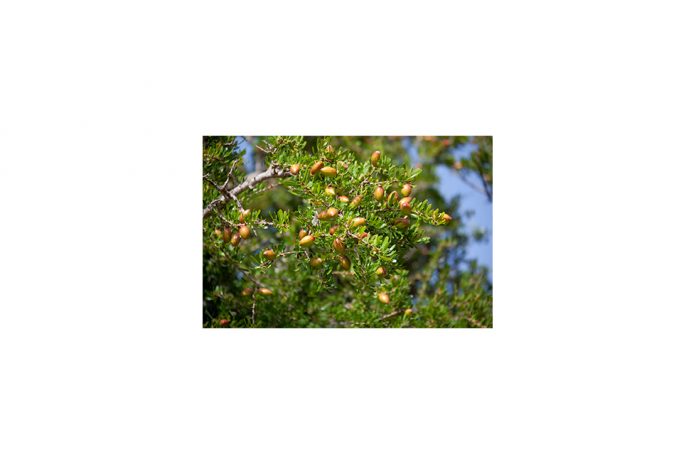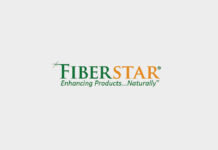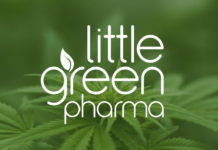Argan oil is the hottest new beauty buy
By Noa Glouberman
Forget oil-free—the new beauty philosophy includes oils that are rich in vitamins, minerals, antioxidants and essential fatty acids. Derived from natural plant concentrates, argan oil is being touted as the newest saviour for skin and hair.
What is it? Argan oil (Argania spinosa) is produced from the kernels of the argan tree, which grows wild in Morocco. The argan tree thrives in semi-arid soil with nut-sized fruits that contain one to three argan oil-rich kernels. It is rare oil due to the tree’s very specific growing areas and the tree’s use by locals for wood. (The rising popularity of argan oil in North America has prompted the Moroccan government to no longer allow cutting them down, and plans for increased production of oil aim to triple annual output by 2020.)
Is it new? No. It was first reported by explorers in the 1500s, and was taken to Europe in the 1700s. But use as a beauty aid is relatively new in North America. “Several companies from Europe have been using argan oil in their products for at least 15 years, particularly in France, since it was introduced as an established, popular product in much of North Africa,” states Pascal Frochisse, president of Distripharm in Saint-Bruno, Quebec. His company uses argan oil in its Nafha French organic products.
What is it in? Argan oil is traditionally used for food, but was launched in North America as a hair care ingredient and is now expanding into body care. For hair, it is packaged as a smoothing oil ── just a few drops is placed on dry hair to increase lustre and shine –– or as one ingredient within shampoos and conditioners. For skin, it is found in body moisturizers and anti-aging creams. “Our main line of skin products and hair conditioners contains argan oil, and we recently launched a new beauty brand called African Essentials that also contains the ingredient,” says Jérôme Vignols, president of Flash Beauté Inc. in Laval, Quebec. Distripharm uses the ingredient within its anti-ageing and moisturizing facial creams along with other oils and extracts, and as a pure oil product for skin.
What does it do? Argan oil is said to help repair damaged hair and heal a dry scalp. For skin, it may reduce acne, aid in the treatment of psoriasis and eczema, soften scar tissue, and even diminish premature wrinkles and age spots. Beauty products include argan oil because of its ability to treat dull, dry skin and hair according to Vignol. (Health benefits of consuming argan kernel oil have been reported to include lowering cholesterol and protecting against tumours due to its antioxidants.)
What makes it work? This oil boasts nearly three times the amount of vitamin E as olive oil. It also contains essential fatty acids, arotenoids, ferulic acid, sterols, polyphenols, carotenes, and squalene. All of these elements are known to help heal skin, reduce inflammation and fend off free radicals. (The antioxidant phenols in argan oil are caffeic acid, oleuropein, tyrosol, catechol, resorcinol, epicatechin and catechin.)
How quickly does it work? The fast-absorbing properties of argan oil enable its benefits to be seen instantly, especially if you have dry skin or hair that’s been damaged by a cold climate, chlorine or colour treatments. It gives immediate smoothness and brilliance to hair when applied as oil on dry or wet hair.
What makes it unique? One advantage compared with other oils is that argan has a fairly dry and silky, rather than heavy, finish. When applied to your body, it doesn’t leave a greasy residue on skin.
Why buy it? The number of cosmetics containing argan oil on the U.S. market increased from two in 2007 to over 100 in 2011. A September 2012 search for “pure argan oil” on Amazon.com yielded over 500 items in the beauty department alone. One hair treatment by the brand Moroccan Oil has spent nearly 900 days on Amazon’s top 100 best-selling beauty products.
Are there different qualities or grades? To date, the most popular and promoted brand of argan-based oil is Moroccan Oil, but it includes silicone and linseed extract. Other brands are available that do not have these additional ingredients. Some methods of extraction use more processing and even use argan kernels that are left behind after goats have ingested the fruit and the seed is defecated. However, the highest quality brands use unrefined, certified organic oil extracted only from kernels of fallen fruits that are separated, sundried and hand-crushed by women using traditional methods with stones.
What do consumers think? “It’s new for us to work with argan oil, but the comments from customers have been very good,” Vignols says. “Even at trade shows where people are trying the testers and look for immediate results, they really like the product.”









